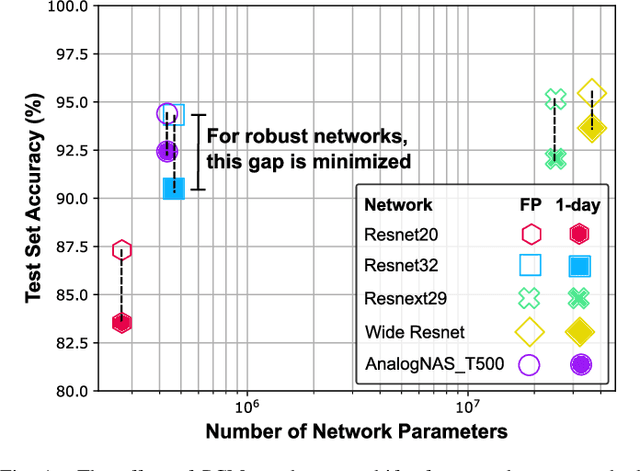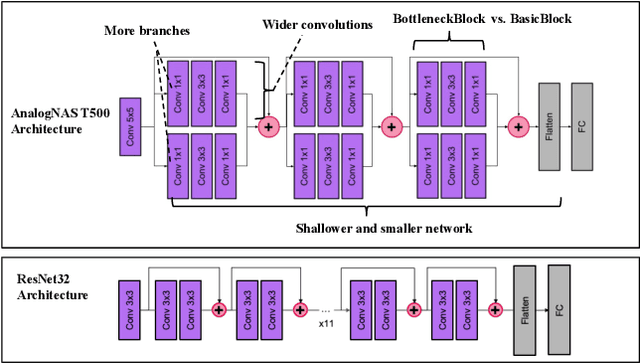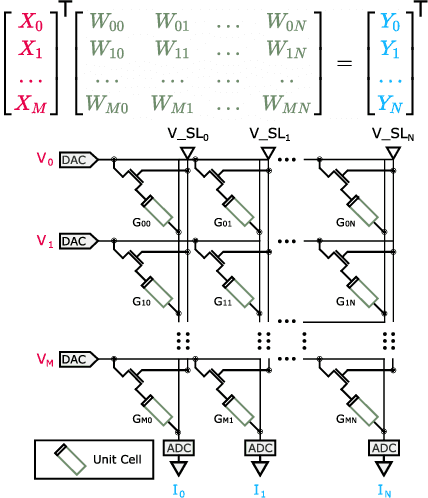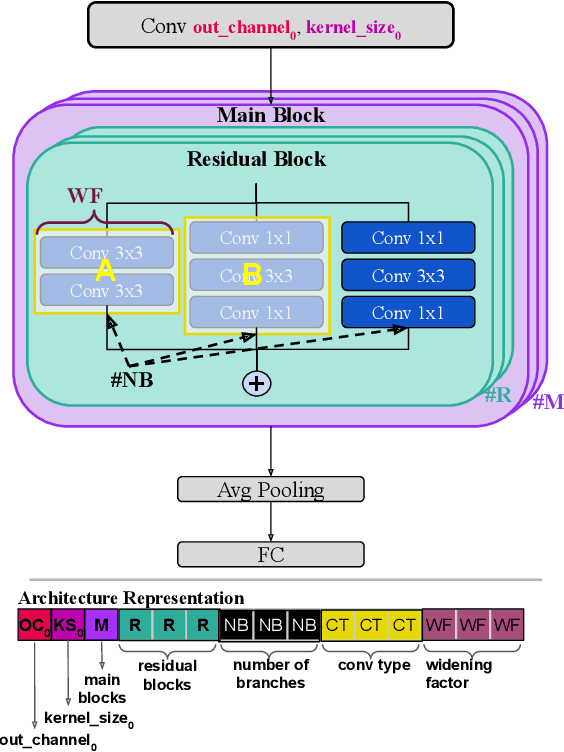Ouarnoughi Hamza
AnalogNAS: A Neural Network Design Framework for Accurate Inference with Analog In-Memory Computing
May 17, 2023



Abstract:The advancement of Deep Learning (DL) is driven by efficient Deep Neural Network (DNN) design and new hardware accelerators. Current DNN design is primarily tailored for general-purpose use and deployment on commercially viable platforms. Inference at the edge requires low latency, compact and power-efficient models, and must be cost-effective. Digital processors based on typical von Neumann architectures are not conducive to edge AI given the large amounts of required data movement in and out of memory. Conversely, analog/mixed signal in-memory computing hardware accelerators can easily transcend the memory wall of von Neuman architectures when accelerating inference workloads. They offer increased area and power efficiency, which are paramount in edge resource-constrained environments. In this paper, we propose AnalogNAS, a framework for automated DNN design targeting deployment on analog In-Memory Computing (IMC) inference accelerators. We conduct extensive hardware simulations to demonstrate the performance of AnalogNAS on State-Of-The-Art (SOTA) models in terms of accuracy and deployment efficiency on various Tiny Machine Learning (TinyML) tasks. We also present experimental results that show AnalogNAS models achieving higher accuracy than SOTA models when implemented on a 64-core IMC chip based on Phase Change Memory (PCM). The AnalogNAS search code is released: https://github.com/IBM/analog-nas
 Add to Chrome
Add to Chrome Add to Firefox
Add to Firefox Add to Edge
Add to Edge